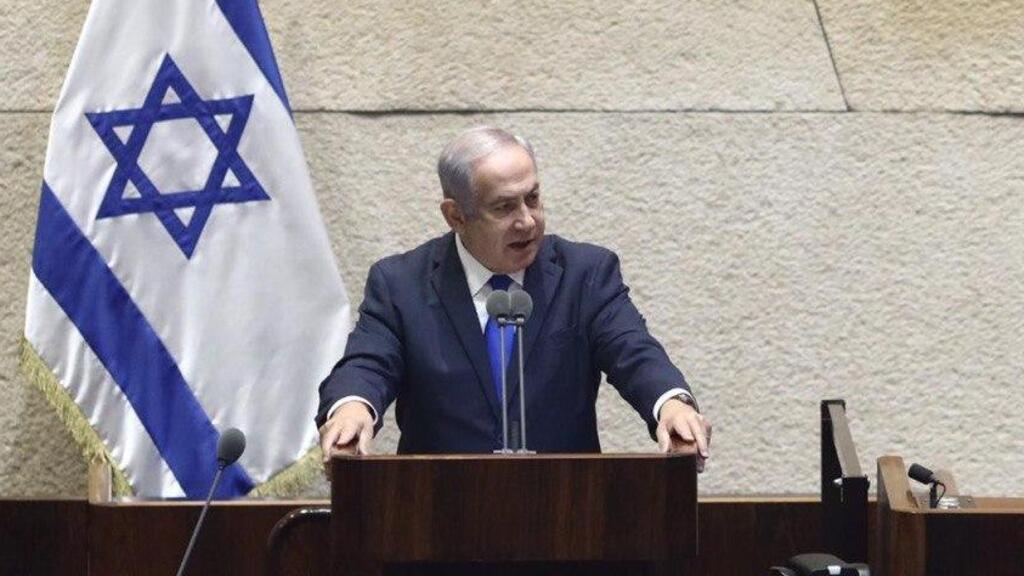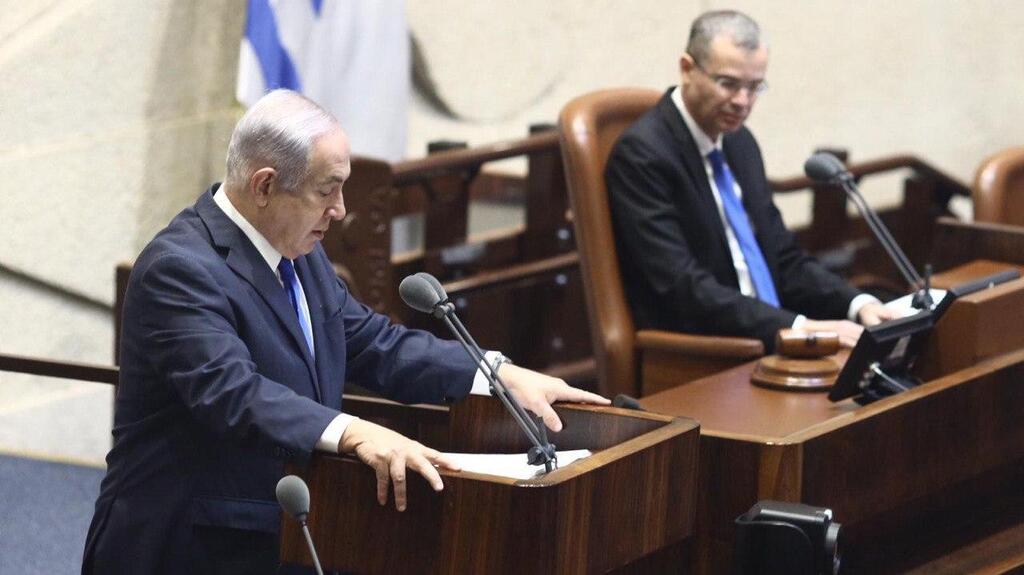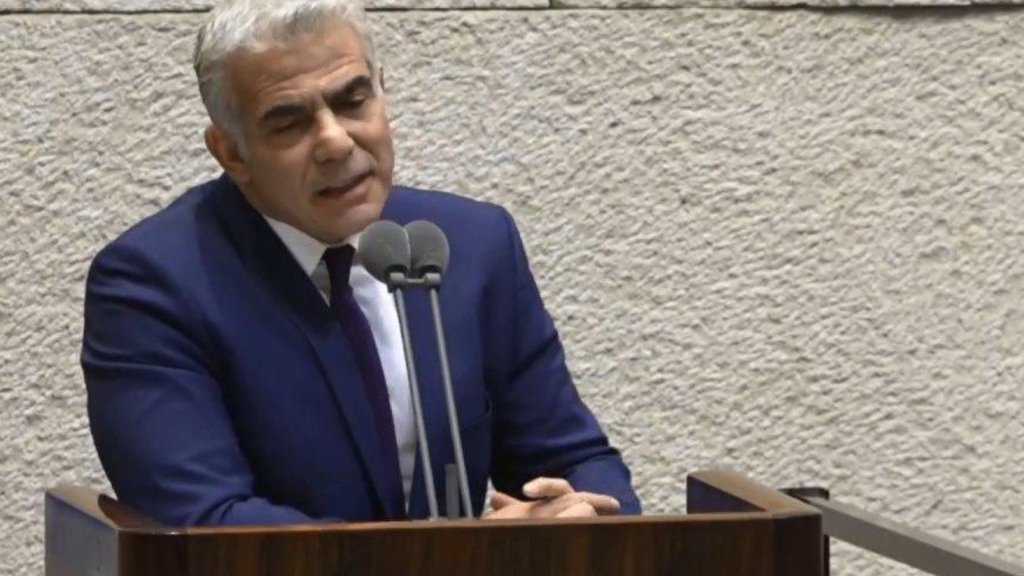Getting your Trinity Audio player ready...
The Knesset on Thursday voted to approve Israel's recent agreement to normalize ties with the United Arab Emirates, with 80 MKs voting in favor and 13 against.
The treaty was announced in August in a surprise statement by the White House. The UAE has become just the third Arab country to establish official ties with Israel, after Egypt and Jordan, and the first to do so in a quarter century. Bahrain is also in the process of formalizing ties with Israel, and the White House has suggested that other Arab countries will follow suit.
The agreement was approved by the cabinet on Monday before being presented to the plenum for the parliamentary vote.
Prime Minister Benjamin Netanyahu took the Knesset stand as the last of over 120 speakers. "Many Arab and Muslim countries want to get close to us," Netanyahu said in a speech. "They see our military and intelligence, technological and economic power. They are changing their attitude toward us."
Netanyahu also hinted the breakthrough in Israel's relations with Saudi Arabia came following his speech in U.S. Congress in 2015.
"We had a breakthrough in an important relationship with one of the countries in the region," he said. "Years there was no connection or just a technical one. But it had changed. That happened when your servant went to speak in Congress and received, in real time, messages that said: If you stand so strongly against the aggression of Iran that is trying to eliminate us, we are ready to stand with you."
The Joint List, the main Arab-dominated faction in parliament, cast the lone opposing votes Thursday in solidarity with their Palestinian brethren.
Ayman Odeh, chairman of the Joint List, said the only deal that would bring peace and prosperity to the region would be a peace agreement creating an independent Palestinian state alongside Israel. "The deal being signed today is part of Trump's dangerous vision that ... will perpetuate the military regime on millions of Palestinians, the settlements and the outposts," he wrote in a tweet before the vote.
Presenting the details of the agreement to the Knesset earlier, Netanyahu again Thursday denied that the deal included a secret provision for the sale of advanced U.S. military tech to the UAE, despite confirmation from American officials.
"This is a day with few like it in the history of the country; a day when a peace agreement with an Arab state is brought for approval by the Knesset," the prime minister said in his opening remarks.
"We are presenting a peace agreement that does not contain secret addenda, it does not contain concealed appendices. Today we are tightening our relations with the Emirates and doing so during to our constant struggle against coronavirus," he said.
4 View gallery


Prime Minister Benjamin Netanyahu addressing the Knesset as it meets to approve the UAE deal
(Photo: The Knesset)
Defense Minister Benny Gantz commended the prime minister for "choosing to embark on the path to peace." He added that the defense establishment is engaged in maintaining Israel's qualitative edge and security interests. "As long as I am defense minister, Israel's military power and qualitative edge in this region will be maintained, strengthened and further entrenched," he said.
Opposition leader Yair Lapid (Yesh Atid) said the peace agreement was a commendable achievement but Israel needs a leader that will make peace among Israelis.
"We are living here and not in the Gulf," Lapid said. "It is time for a leader that can forge peace at home, among Israelis. It is time for you to go," he told the prime minister.
The agreement has already had an impact on various industries in both countries. On Wednesday, the first-ever Emirati commercial flight entered Israeli airspace in the wake of an open skies agreement with Jordan that followed the deals with the Gulf states.
Israeli airspace is now being used by a multitude of Arab countries, including Iraq, Qatar and Saudi Arabia, as part of the new aviation agreement between Jerusalem and Amman.




